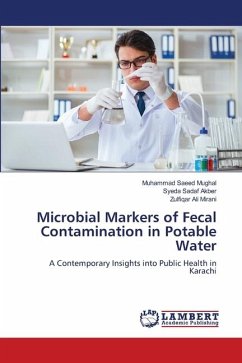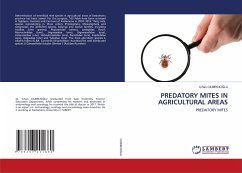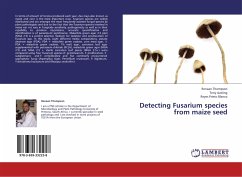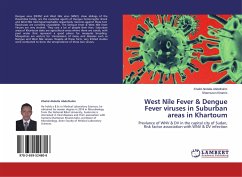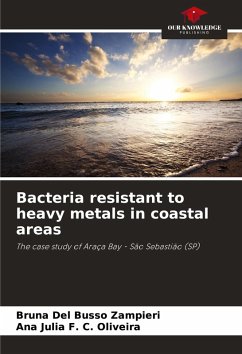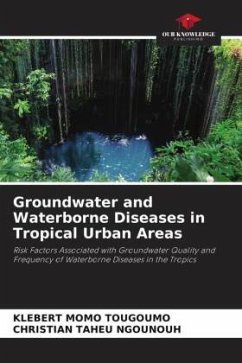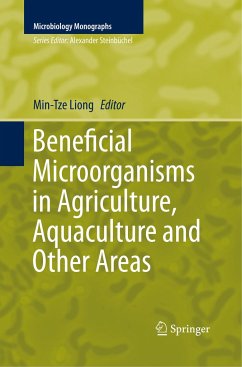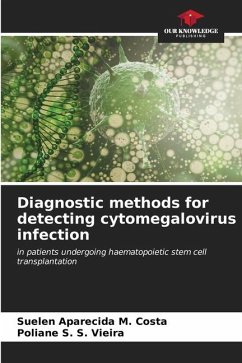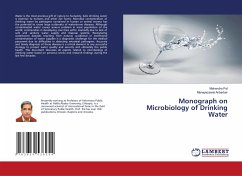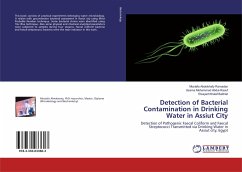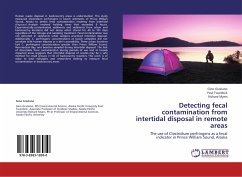
Detecting fecal contamination from intertidal disposal in remote areas
The use of Clostridium perfringens as a fecal indicator in Prince William Sound, Alaska
Versandkostenfrei!
Versandfertig in 6-10 Tagen
32,99 €
inkl. MwSt.

PAYBACK Punkte
16 °P sammeln!
Human waste disposal in backcountry areas is understudied. This study measured Clostridium perfringens in beach sediments of Prince William Sound, Alaska to detect fecal contamination resulting from intertidal disposal. Analysis involved holding times that exceeded 8 hours. Experimentally contaminated sediments and sediments from urban and backcountry locations did not decay when stored for 49 to 101 days regardless of the storage and sampling treatment. Fecal contamination was not detected in sediments while campers practiced intertidal disposal. Additionally, C. perfringens concentrations at...
Human waste disposal in backcountry areas is understudied. This study measured Clostridium perfringens in beach sediments of Prince William Sound, Alaska to detect fecal contamination resulting from intertidal disposal. Analysis involved holding times that exceeded 8 hours. Experimentally contaminated sediments and sediments from urban and backcountry locations did not decay when stored for 49 to 101 days regardless of the storage and sampling treatment. Fecal contamination was not detected in sediments while campers practiced intertidal disposal. Additionally, C. perfringens concentrations at beach campsites did not correlate with human impacts or a site s accessibility. Three urban locations had C. perfringens concentrations greater than Prince William Sound, Resurrection Bay, and beaches sampled during intertidal disposal. The lack of detectable fecal contamination during periods of use and at heavily impacted areas suggests that intertidal disposal of wastes may be a safe method for small groups (12) of backcountry travelers. This work is of value to land managers and researchers seeking to measure fecal contamination in backcountry areas.



